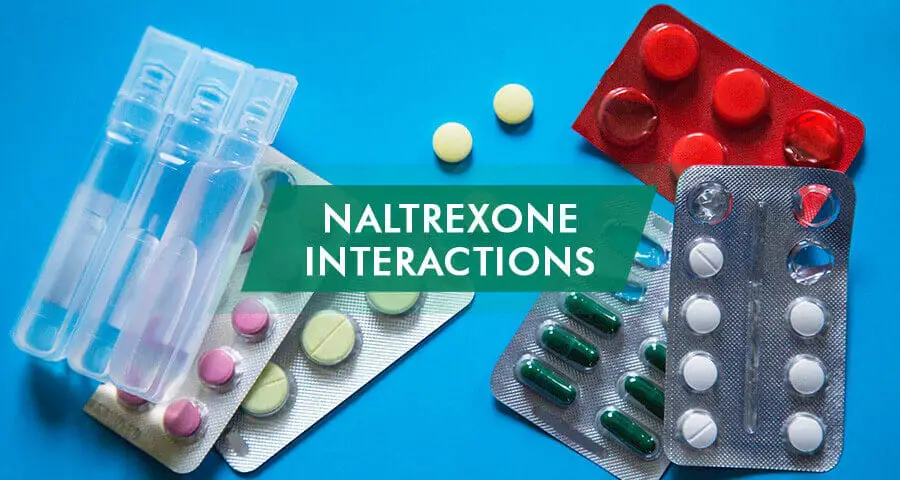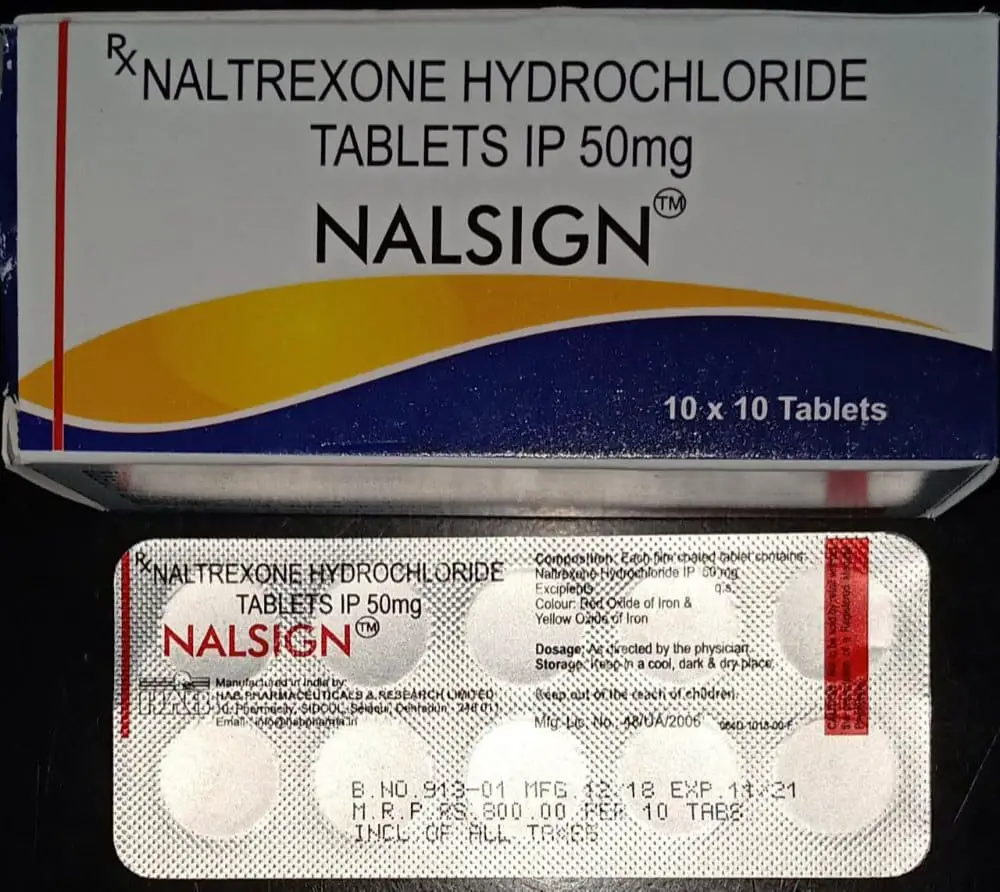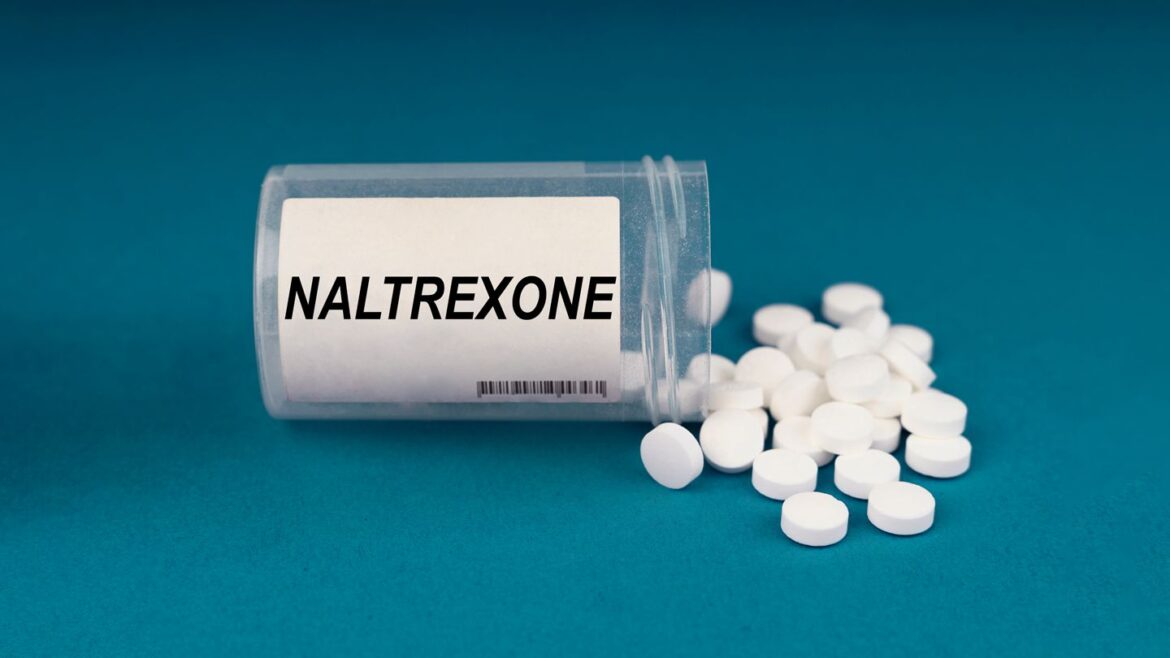Introduction
Can Naltrexone Help With Weight Loss: In the quest for effective weight management, individuals often explore a wide range of strategies and interventions. One such approach that has garnered attention in recent years is the use of naltrexone as a potential aid in weight loss efforts. Naltrexone is a medication primarily known for its role in treating addiction to opioids and alcohol. However, emerging research suggests that it may also have a role to play in helping individuals shed excess pounds. This intriguing possibility has led to increased interest and investigation into whether naltrexone can indeed be a valuable tool in the battle against obesity. In this exploration, we will delve into the potential mechanisms by which naltrexone might influence weight loss, examine the current state of research on the topic, and consider the factors that individuals and healthcare professionals should weigh when contemplating its use as a weight management strategy.
Some researchers believe that naltrexone may influence appetite by affecting the brain’s reward system. It could reduce cravings for high-calorie foods, particularly those high in sugar and fat, by diminishing the pleasurable sensations associated with consuming such foods.
Naltrexone might also impact metabolism, although the exact mechanisms are still being studied. Some theories suggest that it could affect hormones related to hunger and satiety, potentially leading to reduced calorie intake. Emerging research suggests that naltrexone could influence the composition of the gut microbiome. A healthier gut microbiome is associated with better metabolic health, and alterations in gut bacteria could potentially affect weight regulation.

Why do people lose weight on naltrexone?
Naltrexone can help break the cycle of elevated insulin, weight gain and decreased growth hormone by shifting the balance to lower insulin, weight loss and increased growth hormone leading to the ability to develop more lean muscle mass and better calorie burning capabilities.
Appetite Regulation
One of the key reasons people experience weight loss on naltrexone is its impact on appetite regulation. Naltrexone indirectly influences the brain’s reward and pleasure centers, which play a significant role in food cravings and overeating. By reducing the pleasurable effects of certain foods, naltrexone can help individuals control their cravings and consume fewer calories, leading to weight loss over time.
Reduced Binge Eating
Naltrexone has shown promise in reducing the frequency and intensity of binge eating episodes, a common problem among individuals struggling with obesity. It may work by decreasing the urge to engage in compulsive overeating, making it easier for individuals to adopt healthier eating habits and lose weight.
Alcohol and Food Interactions
Another factor contributing to weight loss on naltrexone is the potential interaction between alcohol and food. Naltrexone is also used to treat alcohol dependence, and it can help reduce alcohol cravings and consumption. Since alcohol can contribute to weight gain due to its high-calorie content, people taking naltrexone for alcohol addiction may indirectly experience weight loss by cutting down on alcohol consumption.
Hormonal Effects
Naltrexone’s influence on certain hormones may also play a role in weight loss. Some studies suggest that naltrexone can affect hormones like insulin and leptin, which are involved in hunger and satiety regulation. These hormonal changes may contribute to reduced food intake and, subsequently, weight loss.
Improved Mood and Mental Well-being
Naltrexone’s impact on mood and mental well-being could indirectly contribute to weight loss. By helping individuals overcome emotional eating patterns or depression, naltrexone may enable them to make healthier food choices and engage in regular physical activity, both of which are essential for weight management.
Can you take just naltrexone for weight loss?
Only use low-dose Naltrexone (LDN) for weight loss. Full doses of Naltrexone are not appropriate for this off-label purpose. You will need to work with a health care provider to get this prescription. It’s best to seek out a specialist familiar with Naltrexone for weight loss applications.
Naltrexone’s Mechanism of Action
Before delving into why naltrexone isn’t commonly prescribed for weight loss alone, it’s crucial to understand how this medication works. Naltrexone is an opioid receptor antagonist, which means it blocks the effects of opioids in the brain. It affects the brain’s reward system and has been associated with reduced cravings for certain substances, such as opioids and alcohol.
Limited Efficacy
While naltrexone can influence appetite and cravings, it is not a potent weight loss medication on its own. The weight loss achieved with naltrexone alone is typically modest and varies from person to person. For significant and sustainable weight loss, a more comprehensive approach is necessary.
Lack of Direct Impact on Metabolism
Naltrexone does not directly affect metabolism or calorie burning. Weight loss often requires a combination of reduced calorie intake and increased physical activity, which naltrexone does not directly address. Therefore, relying solely on naltrexone may not produce the desired results.
Risk-Benefit Considerations
Naltrexone is a prescription medication with potential side effects, including nausea, headache, and liver enzyme elevations. It is generally recommended for individuals with opioid addiction or alcohol dependence who can benefit from its primary purpose. Using it solely for weight loss may expose individuals to unnecessary risks.
How quickly does naltrexone work?
How long does it take for naltrexone to work? Naltrexone will begin working shortly after taking one dose.
Immediate vs. Delayed-Release Naltrexone
Immediate-Release Naltrexone: This form of naltrexone is typically taken daily, and it begins to take effect relatively quickly. After ingestion, it is rapidly absorbed into the bloodstream, with peak levels reached within 1-2 hours. This means that it can start blocking the effects of opioids or alcohol within a few hours of taking the medication.
Extended-Release Naltrexone: Extended-release naltrexone is administered as a monthly injection. The timeline for its effects is different from the immediate-release version. While it may start working within hours, its prolonged release provides continuous opioid receptor blockade for about a month.
Factors Affecting How Quickly Naltrexone Works
Dosage: The dosage of naltrexone prescribed can impact its effectiveness. Higher doses may provide more robust opioid receptor blockade and may work more quickly.
Individual Response: People’s responses to medications can vary. Some individuals may experience the effects of naltrexone more quickly than others.
Tolerance: If someone has built up a tolerance to opioids, it may take longer for naltrexone to fully block the effects of these substances.
Opioid Type: The specific opioid substances a person has been using can also influence how quickly naltrexone works. Some opioids have longer-lasting effects, while others are shorter-acting.
Is naltrexone used for obesity?
Descriptions. Naltrexone and bupropion combination is used together with a reduced-calorie diet and proper exercise to help lose weight and keep it off. This medicine is used in people who are overweight or very overweight and who also have weight-related medical problems.
The Role of Naltrexone in Obesity Treatment
Appetite Regulation: Naltrexone is thought to contribute to weight loss by influencing appetite regulation. It targets the brain’s reward and pleasure centers, which can help reduce cravings for certain foods and curb overeating. By blocking the pleasurable effects of food, individuals may find it easier to control their calorie intake.
Binge Eating: Naltrexone may also be beneficial for individuals who struggle with binge eating disorder (BED), a condition characterized by recurrent episodes of excessive food consumption. By reducing the urge to engage in binge eating, naltrexone can support healthier eating habits and contribute to weight loss.
Combinations with Other Medications: In some cases, naltrexone is used in combination with other medications for obesity treatment. For example, it may be paired with bupropion (known as Contrave) to enhance its effects on appetite regulation and weight loss.
Naltrexone and Contrave: Contrave, a prescription weight loss medication, contains both naltrexone and bupropion. Bupropion acts as an antidepressant and aids in appetite suppression, while naltrexone complements its effects by targeting the brain’s reward pathways. This combination can be more effective than naltrexone alone for some individuals seeking weight loss.
Efficacy and Considerations
Individual Variation: People’s responses to medications differ, and what works well for one person may not be as effective for another. Healthcare providers often assess an individual’s unique needs and medical history before prescribing naltrexone for obesity.
Comprehensive Approach: Naltrexone should be viewed as one component of a comprehensive approach to obesity treatment. Lifestyle modifications, including diet and exercise, are crucial for achieving and maintaining weight loss.
Safety and Side Effects: Like any medication, naltrexone and Contrave can have side effects, including nausea, headache, and changes in blood pressure. It’s essential to discuss potential risks and benefits with a healthcare professional.
Long-Term Use: The long-term safety and effectiveness of naltrexone for obesity treatment are still being studied. Patients should work closely with their healthcare providers to monitor progress and make informed decisions.
How long can you take naltrexone?
You and your doctor have to decide this. Most people take the medicine for 12 weeks or more. Naltrexone only has to be taken once a day.
Alcohol Dependence Treatment
Naltrexone can be used in the treatment of alcohol dependence. The duration of naltrexone treatment for alcohol dependence is typically determined by the individual’s response to the medication and their treatment goals. Some individuals may use it for several months to reduce alcohol cravings and relapse risk, while others may continue for a longer duration.
Chronic Pain Management
Naltrexone may be used off-label to manage certain types of chronic pain. The duration of naltrexone treatment for chronic pain varies depending on the specific pain condition, its severity, and how well an individual responds to the medication. It can be prescribed for as long as it provides pain relief and is well-tolerated.
Weight Loss and Binge Eating
Naltrexone is sometimes prescribed, alone or in combination with other medications, to aid in weight management and reduce binge eating episodes. The duration of naltrexone treatment for weight loss or binge eating disorder is typically determined by the individual’s progress and treatment goals. It may be used for several months to support behavioral changes and healthier eating patterns.
What are the benefits of taking naltrexone?
Naltrexone belongs to a class of drugs known as opiate antagonists. It works in the brain to prevent opiate effects (such as feelings of well-being, pain relief). It also decreases the desire to take opiates. Ask your doctor or pharmacist if you should have naloxone available to treat opioid overdose.
Addiction Treatment
Opioid Addiction: Naltrexone is used to treat opioid addiction by blocking the effects of opioids. It reduces cravings and the rewarding sensations associated with opioid use, making it an essential tool in medication-assisted treatment (MAT). Benefits include increased sobriety rates and a reduced risk of relapse.
Alcohol Dependence: Naltrexone is also approved for the treatment of alcohol dependence. It helps reduce alcohol cravings and the pleasurable effects of drinking, making it easier for individuals to control their alcohol consumption. This can lead to decreased alcohol use and a higher likelihood of successful recovery.
Pain Management
Chronic Pain: Naltrexone is sometimes used off-label as an adjuvant in the management of chronic pain conditions. It works by modulating the body’s response to pain, providing pain relief for some individuals. This can be particularly beneficial for those with specific types of chronic pain, such as neuropathic pain.
Weight Management
Weight Loss: Naltrexone has gained attention as a potential aid in weight management. It can help regulate appetite and reduce cravings for certain foods, making it easier for individuals to adhere to a calorie-controlled diet. When used as part of a comprehensive weight loss plan, it may contribute to successful weight reduction.
Binge Eating Disorder: For individuals with binge eating disorder (BED), naltrexone can help reduce the frequency and intensity of binge eating episodes. By curbing the urge to overeat, it supports healthier eating habits and improved psychological well-being.
Mental Health
Depression: Some studies have explored naltrexone’s potential antidepressant effects, especially in individuals with treatment-resistant depression. While more research is needed in this area, it suggests that naltrexone may have a role in enhancing mental health.
Autoimmune Disorders
Multiple Sclerosis: Naltrexone has been investigated as a treatment for multiple sclerosis (MS) due to its potential immunomodulatory effects. Some studies have shown promise in reducing the progression of the disease and improving quality of life for MS patients.
Does naltrexone help with PCOS weight loss?
This 25mg to 50mg dosage is the FDA approved dosage. Opioids regulate many processes throughout the body. They can regulate glucose metabolism and insulin levels. Naltrexone may help regulate insulin levels and lead to decreased PCOS symptoms through its effect on weight loss.
Appetite Regulation
Cravings Control: Naltrexone is thought to influence appetite regulation by targeting the brain’s reward pathways. It can reduce cravings for high-calorie, sugary, and processed foods, which are often problematic for individuals with PCOS. By curbing these cravings, it may facilitate better food choices and calorie control.
Binge Eating: Some women with PCOS experience binge eating episodes, which can contribute to weight gain. Naltrexone has shown promise in reducing the frequency and intensity of binge eating, potentially helping individuals with PCOS manage their weight more effectively.
Insulin Sensitivity
Improved Insulin Function: While not a direct mechanism of naltrexone, some research suggests that it may have a positive impact on insulin sensitivity. Improved insulin function can be beneficial for individuals with PCOS, as insulin resistance is often a key factor contributing to weight gain and metabolic disturbances.
Psychological Well-being
Emotional Eating: PCOS can be associated with emotional eating patterns, particularly when dealing with the challenges of the condition. Naltrexone may help individuals manage emotional eating by reducing the rewarding aspects of certain foods, thereby breaking the cycle of emotional eating.
Comprehensive Approach
It’s important to note that naltrexone should be considered as part of a comprehensive approach to PCOS weight management. This approach typically includes dietary modifications, regular physical activity, and, when necessary, other medications or interventions tailored to the individual’s specific needs.
Is naltrexone a good idea?
There are numerous studies and programs highlighting the benefits of Naltrexone to treat alcoholism, such as the ContrAL Clinic in Finland, which treated over 6,000 patients with opiate antagonist medication like naltrexone to reduce their drinking levels. The program shows a 78% success rate.
Chronic Pain Management
Chronic Pain Conditions: Naltrexone is sometimes used off-label in the management of chronic pain, particularly neuropathic pain. If you have chronic pain and are considering naltrexone, it is essential to consult with a healthcare provider to determine if it is appropriate for your specific pain condition.
Weight Management and Binge Eating
Weight Loss: Naltrexone has shown potential as an adjunctive treatment for weight management, particularly for individuals struggling with obesity or binge eating disorder. If you are pursuing weight loss and have explored other options with your healthcare provider, naltrexone may be considered as part of a comprehensive plan.
Mental Health:
Depression: Some studies have suggested that naltrexone may have antidepressant effects, particularly in cases of treatment-resistant depression. However, more research is needed in this area. If you have depression that has not responded well to other treatments, discuss the potential benefits and risks of naltrexone with a mental health professional.
Autoimmune Disorders
Multiple Sclerosis: Naltrexone has been investigated as a potential treatment for multiple sclerosis (MS) due to its potential immunomodulatory effects. If you have MS, consult with a specialist to determine if naltrexone is a suitable option for your condition.
Consultation and Personalization
It is crucial to remember that the decision to use naltrexone should be made in consultation with a healthcare provider who can assess your unique medical history, needs, and goals.
Naltrexone may have side effects and interactions with other medications, so a thorough discussion with a healthcare professional is essential.

Conclusion
The question of whether naltrexone can effectively aid in weight loss remains a topic of ongoing research and exploration. While there are promising indications that naltrexone may play a role in weight management by influencing appetite regulation, metabolism, and gut microbiome composition, it is important to recognize that the current body of evidence is still evolving. Clinical studies have shown some positive outcomes, with individuals experiencing modest reductions in body weight when using naltrexone. However, it is crucial to emphasize that the use of naltrexone for weight loss should be approached with caution and under the guidance of a healthcare professional. Individual responses can vary, and the medication may not be suitable or effective for everyone.
Moreover, the potential benefits of naltrexone for weight loss may be most pronounced when used as part of a comprehensive approach that includes dietary changes, physical activity, and behavioral modifications. Combining naltrexone with these lifestyle adjustments may yield more significant and sustainable results. In light of these considerations, individuals interested in exploring naltrexone as a weight management strategy should engage in open and informed discussions with their healthcare providers. Medical supervision is crucial to assess whether naltrexone is an appropriate option, monitor potential side effects, and ensure that the approach aligns with overall health goals.
As research on naltrexone’s role in weight loss continues to expand, a more definitive understanding of its safety, efficacy, and optimal usage will emerge. Until then, individuals should prioritize a holistic and personalized approach to weight management that addresses their unique needs and circumstances.


3 comments
… [Trackback]
[…] Information on that Topic: thefitnessblogger.com/can-naltrexone-help-with-weight-loss/ […]
… [Trackback]
[…] Find More here to that Topic: thefitnessblogger.com/can-naltrexone-help-with-weight-loss/ […]
… [Trackback]
[…] There you will find 85191 more Info on that Topic: thefitnessblogger.com/can-naltrexone-help-with-weight-loss/ […]